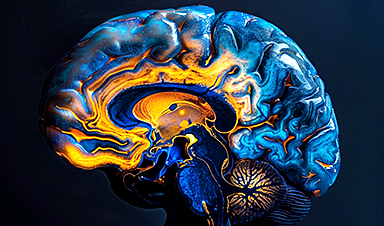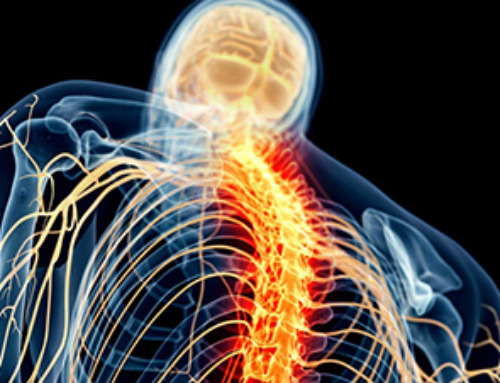What if poor sleep was doing more than just making you tired?
Researchers have discovered that disrupted sleep in older adults interferes with the brain’s ability to clean out waste, leading to memory problems and increasing the risk of neurological diseases like Alzheimer’s.
Poor Sleep and Brain Waste Removal
Poor sleep in older adults may interfere with the brain’s ability to clear out waste, according to researchers at The University of Hong Kong (HKU). A recent study, led by Professor Tatia M.C. Lee, Chair Professor of Psychological Science and Clinical Psychology and May Professor in Neuropsychology at HKU, explores how sleep quality affects brain function.
Sleep, Memory Decline, and Neurological Disorders
The researchers examined how disruptions in the glymphatic system might contribute to memory decline in poor sleepers. When this system malfunctions, harmful proteins accumulate in the brain, a process linked to neurological disorders like Alzheimer’s, Parkinson’s, and epilepsy.
“Sleep quality, brain activities, and glymphatic functioning are related. Understanding how sleep quality influences the glymphatic system and human brain networks offers valuable insight into the neurophysiological mechanisms underpinning age-related memory change,” Professor Lee said.
Study Findings: Poor Sleep Disrupts Brain Function
The research team studied 72 older adults using functional MRI scans and sleep recordings. The findings indicate that poor sleep quality adversely affects normal brain function by deactivating the restorative glymphatic system. “The results clearly reveal the effect of sleep on the human brain’s network through the glymphatic system, which in turn affects memory performance in older adults,” said Professor Lee. “Therefore, maintaining efficient glymphatic functioning seems crucial for promoting healthy aging.”
The Link Between Sleep and Cognitive Health
The results of the study add important evidence that sleep quality affects cognitive health through the underlying neural relationships. “Impaired memory is a common complaint among older adults with poor sleep quality,” Professor Lee noted. “Our results provide a novel perspective on the interplay between sleep, the glymphatic system, and multimodal brain networks.”
Reference: “Effects of sleep on the glymphatic functioning and multimodal human brain network affecting memory in older adults” by Junji Ma, Menglu Chen, Geng-Hao Liu, Mengxia Gao, Ning-Hung Chen, Cheng Hong Toh, Jung-Lung Hsu, Kuan-Yi Wu, Chih-Mao Huang, Chih-Ming Lin, Ji-Tseng Fang, Shwu-Hua Lee and Tatia M. C. Lee, 14 October 2024, Molecular Psychiatry.
DOI: 10.1038/s41380-024-02778-0
News
Specially engineered antibody delivers RNA therapy to treatment-resistant tumors
Elias Quijano, PhD; Diana Martinez-Saucedo, PhD; Zaira Ianniello, PhD; and Natasha Pinto-Medici, PhD, there are 25 other contributors, most from Yale's Department of Therapeutic Radiology and from the departments of genetics, molecular biophysics and [...]
Vaccinated women face fewer cervical cancer risks
New data from Denmark shows the HPV vaccine’s powerful long-term impact, while also revealing why cervical cancer screening is still essential. A Danish study published in the journal Eurosurveillance reports that women who received the human [...]
3D-printed implant offers a potential new route to repair spinal cord injuries
A research team at RCSI University of Medicine and Health Sciences has developed a 3-D printed implant to deliver electrical stimulation to injured areas of the spinal cord, offering a potential new route to [...]
Nanocrystals Carrying Radioisotopes Offer New Hope for Cancer Treatment
The Science Scientists have developed tiny nanocrystal particles made up of isotopes of the elements lanthanum, vanadium, and oxygen for use in treating cancer. These crystals are smaller than many microbes and can carry isotopes of [...]
New Once-a-Week Shot Promises Life-Changing Relief for Parkinson’s Patients
A once-a-week shot from Australian scientists could spare people with Parkinson’s the grind of taking pills several times a day. The tiny, biodegradable gel sits under the skin and releases steady doses of two [...]
Weekly injectable drug offers hope for Parkinson’s patients
A new weekly injectable drug could transform the lives of more than eight million people living with Parkinson's disease, potentially replacing the need for multiple daily tablets. Scientists from the University of South Australia [...]
Most Plastic in the Ocean Is Invisible—And Deadly
Nanoplastics—particles smaller than a human hair—can pass through cell walls and enter the food web. New research suggest 27 million metric tons of nanoplastics are spread across just the top layer of the North [...]
Repurposed drugs could calm the immune system’s response to nanomedicine
An international study led by researchers at the University of Colorado Anschutz Medical Campus has identified a promising strategy to enhance the safety of nanomedicines, advanced therapies often used in cancer and vaccine treatments, [...]
Nano-Enhanced Hydrogel Strategies for Cartilage Repair
A recent article in Engineering describes the development of a protein-based nanocomposite hydrogel designed to deliver two therapeutic agents—dexamethasone (Dex) and kartogenin (KGN)—to support cartilage repair. The hydrogel is engineered to modulate immune responses and promote [...]
New Cancer Drug Blocks Tumors Without Debilitating Side Effects
A new drug targets RAS-PI3Kα pathways without harmful side effects. It was developed using high-performance computing and AI. A new cancer drug candidate, developed through a collaboration between Lawrence Livermore National Laboratory (LLNL), BridgeBio Oncology [...]
Scientists Are Pretty Close to Replicating the First Thing That Ever Lived
For 400 million years, a leading hypothesis claims, Earth was an “RNA World,” meaning that life must’ve first replicated from RNA before the arrival of proteins and DNA. Unfortunately, scientists have failed to find [...]
Why ‘Peniaphobia’ Is Exploding Among Young People (And Why We Should Be Concerned)
An insidious illness is taking hold among a growing proportion of young people. Little known to the general public, peniaphobia—the fear of becoming poor—is gaining ground among teens and young adults. Discover the causes [...]
Team finds flawed data in recent study relevant to coronavirus antiviral development
The COVID pandemic illustrated how urgently we need antiviral medications capable of treating coronavirus infections. To aid this effort, researchers quickly homed in on part of SARS-CoV-2's molecular structure known as the NiRAN domain—an [...]
Drug-Coated Neural Implants Reduce Immune Rejection
Summary: A new study shows that coating neural prosthetic implants with the anti-inflammatory drug dexamethasone helps reduce the body’s immune response and scar tissue formation. This strategy enhances the long-term performance and stability of electrodes [...]
Scientists discover cancer-fighting bacteria that ‘soak up’ forever chemicals in the body
A family of healthy bacteria may help 'soak up' toxic forever chemicals in the body, warding off their cancerous effects. Forever chemicals, also known as PFAS (per- and polyfluoroalkyl substances), are toxic chemicals that [...]
Johns Hopkins Researchers Uncover a New Way To Kill Cancer Cells
A new study reveals that blocking ribosomal RNA production rewires cancer cell behavior and could help treat genetically unstable tumors. Researchers at the Johns Hopkins Kimmel Cancer Center and the Department of Radiation Oncology and Molecular [...]





















